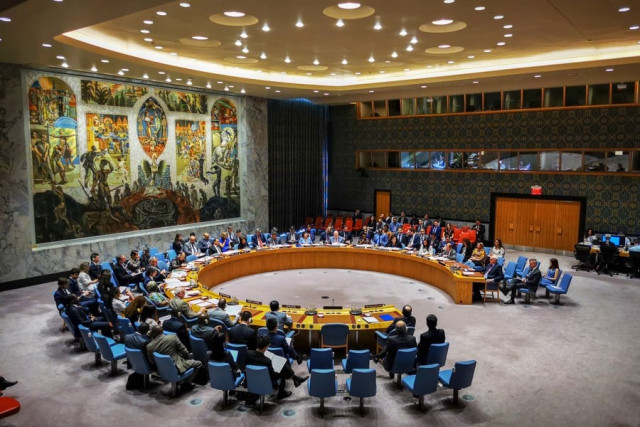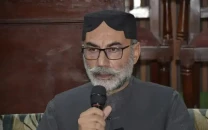Pakistan urges timely action on water-related issues
Envoy says Islamabad’s commitment to water-related goals unwavering

Pakistan has called for addressing water problems such as floods and drought in a “timely and holistic” manner, saying that sustainable water management remained one of the world’s most formidable challenges.
Speaking at a virtual meeting organised by a 17-nation ‘Group of Friends’ and Tajikistan at the UN, Pakistan’s Deputy Permanent Representative Ambassador Aamir Khan, stressed the need for scaling up investment in sustainable and resilient water infrastructure to ensure access to water to all.
The event was held in preparation for the 2023 UN Conference on Water Action, which will be co-hosted by Tajikistan and The Netherlands. Khan said that Pakistan’s engagement and commitment to water-related goals, including SDG [Sustainable Development Goal]-6, was longstanding and unwavering.
“Water is both an economic good and SDG accelerator,” the Pakistani envoy continued. “It is at the core of sustainable development, and pivotal for poverty eradication and economic growth around the world,” he added.
“Delivering on SDG-6 [which calls for clean water and sanitation for all] and guaranteeing water and sanitation for all is a complete win for the Agenda-2030 on Sustainable Development,” Ambassador Khan told the participants.
Read Global water crisis
Noting that the coronavirus pandemic had also highlighted the critical importance of water, the Pakistani envoy said that building a better and greener future was not possible without addressing water issues.
Ambassador Khan highlighted that ‘Recharge Pakistan’ project had been lunched, which envisioned better climate resilience, water and food security, and sustainable livelihoods through ecosystem-based adaptation by 2050.
“Given the importance of water and glaciers for our ecosystem, Pakistan has also announced its support for the initiative of Tajikistan to declare 2025 as the ‘Year of Glaciers’.”
To implement water-related goals, he said the world needs to keep a close eye not only on SDG-6, but also on the other issues of land degradation, desertification, and drought. “When the land degrades, it loses its natural ability to absorb, filter and store water,” he said.
“Climate change is altering pattern of weather around the world, causing droughts in some areas and floods in other,” Khan said.
“Restoring degraded land and fighting land degradation, coupled with sustainable water management, are therefore a key to ensure availability of water for all by 2030.”



















COMMENTS
Comments are moderated and generally will be posted if they are on-topic and not abusive.
For more information, please see our Comments FAQ